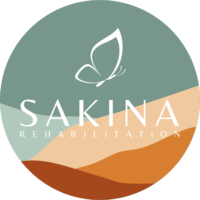At Sakina Alcohol and Mental Health Rehab, we understand that addiction is far more than a lack of willpower or a moral failing; it is a complex and chronic brain disease. Addiction profoundly affects the brain, particularly in areas related to reward, motivation, memory, and decision-making. By exploring and understanding the neuropsychological aspects of addiction, we can better appreciate the challenges of recovery and the importance of comprehensive treatment at Sakina.
The Brain’s Reward System and Dopamine Imbalance
Addiction fundamentally alters the brain’s reward system. Under normal circumstances, this system is designed to reinforce behaviors essential for survival, like eating and social interaction, by releasing dopamine, a neurotransmitter that creates feelings of pleasure. However, addictive substances and behaviors hijack this system, causing an excessive surge in dopamine levels. This surge creates an intense, short-lived pleasure that leads to the development of substance use disorders. Over time, the brain adapts by reducing its natural dopamine production, making it difficult to experience pleasure from everyday activities. This adaptation drives individuals to seek out addictive substances or behaviors to regain that lost sense of pleasure.
Impairment of Decision-Making and Impulse Control
At Sakina Alcohol and Mental Health Rehab, we recognize that addiction also impairs the prefrontal cortex, the brain area responsible for decision-making, impulse control, and self-regulation. In those struggling with addiction, this area becomes compromised, leading to compulsive drug use even when the harmful consequences are well-known. This impairment underscores the importance of understanding the neuropsychological aspects of addiction as a brain disease rather than a mere behavioral choice, highlighting the need for specialized care and treatment.
The Role of Memory, Learning, and Triggered Cravings
Memory and emotional responses play a significant role in addiction. The hippocampus and amygdala, critical regions of the brain, store powerful memories associated with drug use, such as the environment or emotions linked to substance use. These memories can trigger intense cravings and relapse, even long after the substance is no longer in the body. At Sakina Rehab, our approach addresses these psychological and emotional aspects, which are crucial for overcoming substance use disorders and preventing relapse.
Comprehensive Addiction Treatment at Sakina
Understanding the neuropsychological aspects of addiction highlights the necessity of comprehensive treatment. At Sakina Alcohol and Mental Health Rehab, Ras Al-Khaima, UAE, near Dubai, we offer a range of evidence-based therapies, including Cognitive Behavioral Therapy (CBT), to address the neuropsychological changes caused by addiction. Our programs are designed to restore brain balance, improve decision-making and impulse control, and reduce the power of addictive memories, supporting individuals on their journey to long-term recovery.
Addiction recovery is not just about resisting the urge to use; it’s about healing the brain and addressing the underlying neuropsychological aspects of addiction that drive addictive behaviors. At Sakina Alcohol and Mental Health Rehab, we are committed to providing the comprehensive care needed to help individuals reclaim their lives from the grip of addiction.


